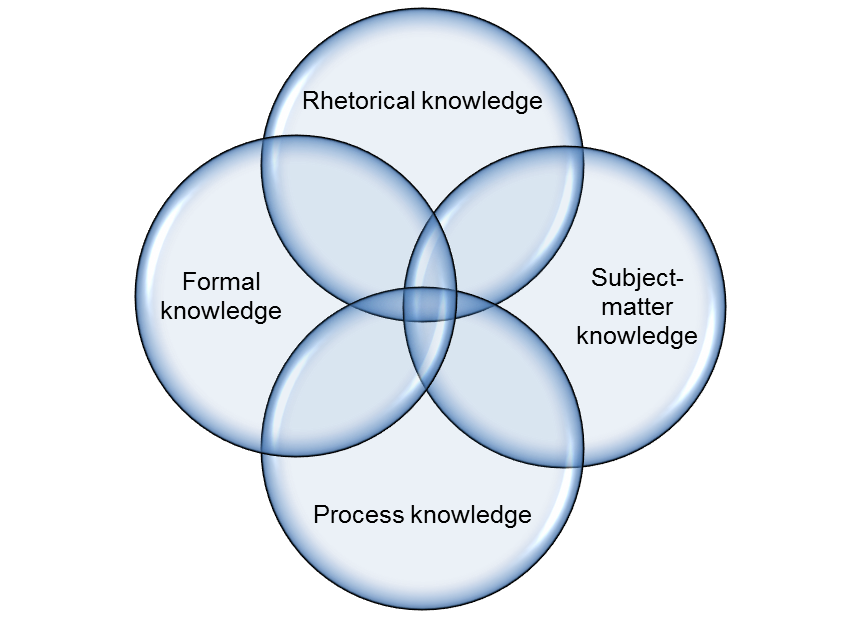Before you hear the plenary, we invite you to complete a small activity. Please read through the following two scenarios/roles. Choose one and complete the task described in it. Please be prepared to draw upon your thoughts during the plenary.
Role 1
Your academic writing context
In this scenario, you you play the part of yourself as researcher writing an article for publication. This is your task:
Provide a short account in which you describe your writing context, i.e. the research field or subfield in which your writing is situated—your “territory”—and how your work contributes to this scientific community.
First, besides broader aspects of the field, you should also describe the specialized sub-field that you aim to address in your writing, and possibly even the journals or publication outlet(s) that you are considering for your article: who are you writing for? How much do you know about your audience? What are the most relevant topics and areas of research that are currently investigated? What kinds of expectations will your reader have about your text?
Then, describe how you as a writer fit into this scientific community: what is your research about, and how, in some way or another, does it contribute to generating more knowledge for your target audience? Why is your work relevant for this scientific community, either in terms of theory/methodology, or in terms of problems and issues with previous findings? This text should be written for a fairly general readership, but try to make the analysis of the audience as specific and concrete as possible (e.g. the readership of a specific journal or specialized area vs. the field as a whole).
Role 2
Mapping genre knowledge
In this scenario, you you play the part of yourself as EAP/academic writing teacher. This is your task:
Think of a specific writing assignment that students need to complete in one of your course modules. Using the diagram to the right, think about the genre knowledge students need in order to successfully write this genre (content, rhetorical, formal, process). Make notes next to the relevant circle. Remember, the circle diagram is a heuristic, and in some cases, the knowledge may span multiple genre knowledge areas.

A reminder of the categories (Tardy, 2009):
Subject matter knowledge: the content
Formal knowledge: what the text looks like – words, grammatical structures, overall structure, sections….
Rhetorical knowledge: the intended purpose of the text, knowledge of the audience and their expectations and values, the status of the author and relationship to reader, how arguments are put together…
Process knowledge: composing processes, the stages the author goes through to complete the task, how the genre links to other genres, what happens next…..